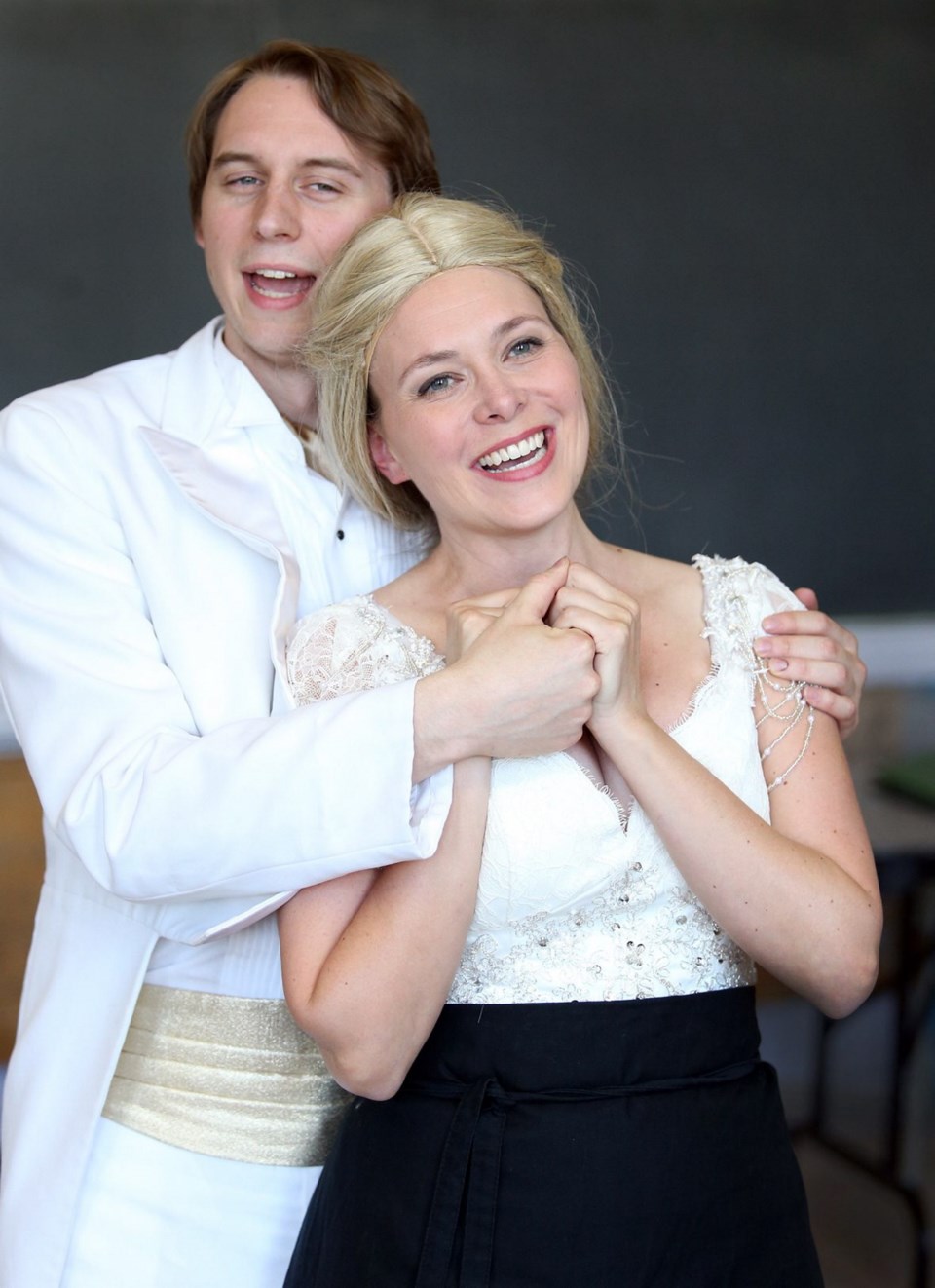What: Fear No Opera: Marriage and Misdemeanours
When/where: Saturday, 7:30 p.m., Phillip T. Young Recital Hall (School of Music, MacLaurin Building, University of Victoria)
Tickets: $30, seniors $20, students $10. Online at fearnoopera.com; in person at Ivy’s Bookshop and Munro’s Books
What: Victoria Conservatory of Music Opera Studio: Words & Music.
When/where: Friday and Saturday, 7:30 p.m., Metro Studio (1411 Quadra St.).
Tickets: $20, seniors and students $10, VCM students and faculty $5.
Since it was launched, in 2012, Fear No Opera has mounted two shows each season: a miscellany of arias and scenes in the fall, a complete opera in the spring. Its next production, on Saturday, will be something of a compromise between these options, comprising two “lightly staged” one-act comic operas in English.
As an amuse-bouche, the company’s founders, soprano Amy Steggles and baritone Neil Reimer, will perform an original comic sketch based on popular operatic tunes, with input solicited from the audience.
The two one-acts are by the Italian-American composer Gian Carlo Menotti (1911-2007), who was a rare bird — a modern composer who wrote accessible, entertaining music aimed at a broad audience.
The curtain-raiser, which runs about 20 minutes, is one of the most popular of Menotti’s more than two dozen musical-theatre works, The Telephone, first performed in 1947 as a light prelude to his longer, darker opera The Medium.
A man, needing to catch a train, makes repeated efforts to ask his girlfriend “something,” but is interrupted each time by her telephone, to his mounting frustration. Only by leaving her apartment and calling her from a phone booth is he able to propose. The opera’s complete title is The Telephone or L’amour à trois — the phone being the third partner in the ménage — and its central conceit seems more relevant than ever in the smartphone era.
(Whether Fear No Opera will employ an authentic period instrument — a 1940s-era rotary-dial phone with a jangling bell — has not been revealed.)
The other one-act, The Old Maid and the Thief, from 1939, was commissioned for radio by NBC, but also exists in a stage version. Running about an hour, it is set in a small town in which live a respectable lady, her maid and her gossipy neighbour. All are starved for male company, so when a beggar appears at the woman’s house, she invites him to stay, and even when it appears that he may be an escaped thief, she goes to great lengths — including crime — to pamper him, with fine comic consequences.
Both operas are neatly plotted and eminently theatrical, approachable and engaging in style, full of musical and literary wit. (Menotti himself wrote the librettos for all of his operas.)
Fear No Opera is a company for “emerging artists,” trained singers seeking stage experience in the transition from student to professional status; most members of the current cast recently earned a bachelor’s or master’s degree. The company is self-financed, its productions chamber-scaled, with the orchestral parts performed in piano reductions.
The Old Maid and the Thief is being given in its original radio-opera form, with spoken narration preceding each of the 14 scenes, and it is being staged as though a radio company — complete with sound-effects man — were broadcasting live before a studio audience.
The Victoria Conservatory of Music’s Opera Studio, founded more than 40 years ago, is a twice-yearly, 14-week program that offers specialized operatic training to advanced voice students. Each term culminates in a staged production for the public, which can comprise a single opera, several one-acts, selections from various operas, or some combination thereof.
(The spring production in 2013, incidentally, included The Medium.)
This weekend’s production, Words & Music, comprises solo numbers, duets, ensembles and scenes from a diverse selection of works in English.
The first half samples from operas composed in the two decades following the Second World War, by Stravinsky, Britten, Blitzstein and others. The second half is given over to Stephen Sondheim, featuring songs and larger numbers from a handful of his stage shows — Sweeney Todd, Follies, Into the Woods, Company, Sunday in the Park With George — and from his one television musical, Evening Primrose.
The stage director, Alison Greene, and the pianists, Csinszka Redai and Robert Holliston (who also serves as musical director), are all longtime Opera Studio collaborators.
The 15 singers who will perform include sopranos, mezzos, baritones and even countertenors, but no tenors. Indeed, both Fear No Opera and Opera Studio are plagued this weekend by a want of tenors — a perennial problem familiar to vocal groups everywhere.
